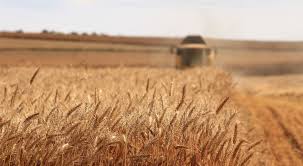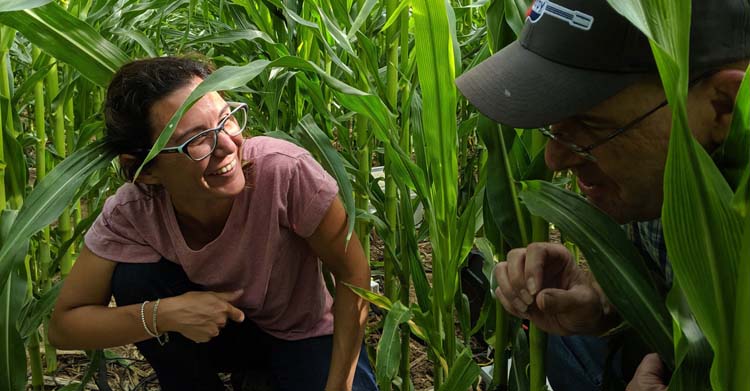Most people know that good oral hygiene – brushing, flossing, and regular dental visits – is linked to good health. Colorado State University microbiome researchers offer fresh evidence to support that conventional wisdom, by taking a close look at invisible communities of microbes that live in every mouth.
The oral microbiome – the sum total of microorganisms, including bacteria and fungi, that occupy the human mouth – was the subject of a crowd-sourced, citizen science-driven study by Jessica Metcalf’s research lab at CSU and Nicole Garneau’s research team at the Denver Museum of Nature & Science. Published in Scientific Reports, the study found, among other things, a correlation between people who did not visit the dentist regularly and increased presence of a pathogen that causes periodontal disease.
For the experiments, carried out by Garneau’s community science team in the Genetics of Taste Lab at the museum, a wide cross-section of museum visitors submitted to a cheek swab and answered simple questions about their demographics, lifestyles and health habits. Microbial DNA sequencing data analyzed by Metcalf’s group revealed, broadly, that oral health habits affect the communities of bacteria in the mouth. The study underscored the need to think about oral health as strongly linked to the health of the entire body.
“Our study also showed that crowdsourcing and using community scientists can be a really good way to get this type of data, without having to use large, case-controlled studies,” said Zach Burcham, a postdoctoral researcher and the paper’s lead author. Senior author Metcalf is an associate professor in the Department of Animal Sciences and a member of CSU’s Microbiome Network.
Cheek swabs
Back in 2015, paper-co-author Garneau and her team trained volunteer citizen scientists to use large swabs to collect cheek cells from museum visitors – a naturally diverse population – who consented to the study. These trained citizen scientists helped collect swabs from 366 individuals – 181 adults and 185 youth aged 8 to 17.
The original impetus for the study was to determine whether and to what extent the oral microbiome contributes to how people taste sweet things. In collecting this data, which was also reported in the paper, the researchers noted more significant data points around oral health habits.
To help translate the data, Garneau turned to Metcalf’s team of experts at CSU. Burcham and the microbiome scientists employed sophisticated sequencing and analysis tools to determine which microbes were present in which mouths. Sequencing for the data was performed in collaboration with scientists in Rob Knight’s group at University of California San Diego. A nutrition team from Michigan State University also brought in expertise on the importance of child and maternal relationships to the data analysis.
“Together, we had a dream team for using community science to answer complicated questions about human health and nutrition, using state-of-the-art microbial sequencing and analysis,” Garneau said.
Flossing and regular dental care
The study grouped people who flossed or didn’t floss (almost everyone said they brushed, so that wasn’t a useful data point). Participants who flossed were found to have lower microbial diversity in their mouths than non-flossers. This is most likely due to the physical removal of bacteria that could be causing inflammation or disease.
Adults who had gone to a dentist in the last three months had lower overall microbial diversity in their mouths than those who hadn’t gone in 12 months or longer, and had less of the periodontal disease-causing oral pathogen, Treponema. This, again, was probably due to dental cleaning removing rarer bacterial taxa in the mouth. Youth tended to have had a dental visit more recently than adults.
Youth microbiomes differed among males and females, and by weight. Children considered obese according to their body mass indices had distinct microbiomes as compared to non-obese children. The obese children also tended to have higher levels of Treponema, the same pathogen found in adults who hadn’t been to the dentist in more than a year. In other words, the researchers saw a possible link between childhood obesity and periodontal disease. “This was very interesting to me, that we were able to detect these data in such a general population, with such a variable group of people,” Burcham said.
Other data uncovered: The microbiomes of younger participants, mostly in the 8- to 9-year-old range, had more diversity than those of adults. However, adult microbiomes varied more widely from person to person. The researchers think this is due to the environments and diets of adults being more wide-ranging than children.
They also saw that people who lived in the same household shared similar oral microbiomes.
“When you look at families who live together, you find they share more of those rare taxa, the bacteria that aren’t found as often in higher abundances,” Burcham explained. It was a data point that underscored the relevance of one’s built environment in relationship to the microbial communities in our bodies.
Working on the mouth study was fascinating, albeit outside Burcham’s normal scope; he is usually focused on studying microbial ecology of decomposition.
“I think how our lives are essentially driven by our microbiomes, and affected by our microbiomes, is interesting, no matter what system we’re looking at,” Burcham said.
The study was made possible by a Science Education Partnership Award from the National Institute of General Medical Sciences, National Institutes of Health (Award #R250D021909).
SPREAD THE NEWS
COMMENT, Like, Follow & SHARE @I70Scout










